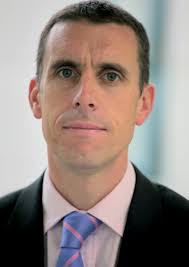The chief executive of Brighton’s main hospital trust is urging staff to help tackle a £13 million overspend.
Matthew Kershaw, who runs the Royal Sussex County Hospital, said that if staff didn’t deliver, an outside team “with no personal history of the trust” could come in and impose cuts.
Mr Kershaw and his trust board colleagues are due to discuss a £17.6 million financial deficit at a meeting today (Monday 28 September).
A report to the Brighton and Sussex University Hospitals NHS Trust board said: “The trust is reporting a £17.6 million year-to-date deficit, which is £6 million behind the plan submitted to the Trust Development Agency (TDA) at the beginning of the year.

“The deficit plan at the beginning of the year was £19.2 million and this has been revised down to £16.7 million in response to a stretch target set by the TDA.
“Income is ahead of plan by £7 million (but) operating costs are overspent by £13.4 million.
“The increased costs reflect operational pressures and actions are being taken to mitigate these.
“Given current financial performance the trust is in a financial recovery process.”
In a message to staff Mr Kershaw said: “I see every day, when I am out and about in the trust, how hard everyone is working and how much we have to be proud of.
“However, we still have real and significant challenges in key areas of our performance which, despite the work done, we have not yet made sufficient progress in addressing.
“To give our recovery plans increased rigour and pace we have developed an internal turnaround approach, the focus of which will be realistic and sustained improvement in three key areas
- unscheduled care as measured by the four-hour A&E (accident and emergency) standard
- scheduled care which includes the 18 week referral-to-treatment and cancer standards
- financial control because for the first five months of 2015-16 we have been spending beyond our budget and this needs to stop
“Rather than an external team with no personal history of the trust being brought in to design and deliver our turnaround programme, we are using our collective understanding of our own challenges to do it ourselves.
“But if we don’t deliver then the option to determine for ourselves how we make the necessary improvements to our operational and financial performance will be at real risk of being removed.
 “We have been working on all of these initiatives and you will be hearing a lot more about turnaround in the coming weeks.
“We have been working on all of these initiatives and you will be hearing a lot more about turnaround in the coming weeks.
“When you do please don’t dismiss it as someone else’s problem or responsibility.
“Everyone needs to understand what we are doing and why and be a part of this vital programme of change because it is only by working together that we can provide a consistently good standard of care for all our patients, improve our effectiveness and productivity and live within our means.”
In a report to the trust board, which is due to meet on Monday, Mr Kershaw, said: “This programme has been designed and delivered using our collective understanding of our own challenges and how to resolve them and will ensure that patient safety and quality is maintained as we address these challenges.”
A month ago the trust’s year-to-date financial deficit was £14 million – or £4 million behind plan.
A report from the trust’s Quality and Risk Committee chairman Malcolm Reed said: “The chief nurse and deputy chief nurse introduced plans to reduce nurse staffing spend, including a cap on agency nurse spending, while continuing to maintain safe nurse staffing levels.”
Professor Reed said: “The chief nurse advised the committee that the TDA (Trust Development Authority) has set a ceiling for agency nurse spending which for BSUH was 4 per cent in quarters 3 and 4, significantly below the 7 per cent agency spend in July.
“However, unlike other trusts, BSUH has already stopped using agency nurses off framework, which supported reductions in agency spending.
“The committee discussed the importance of the ongoing nurse recruitment campaigns which would increase the numbers of substantive staff and limit the reliance on agency and bank staff and also expressed concerns about the continuing delays in being able to complete the appointment of international recruits.
“The committee also noted the challenge in reducing agency usage while planning to open additional capacity.
“The committee also discussed nurse to patient ratios and agreed that they needed to be flexible to address the acuity and dependency of patients while recognising that there was significant evidence of the impact of insufficient staffing levels on the care of patients.”









Why leave it until the end of the report to explain the cost of Agency Care surely that should be the Headline.Why are more nurses not being trained in the UK instead of spending money on recruiting overseas?
Surely the buck stops with the top brass, stop taking you bonuses paid on bad management, and bad leaderships. And you may half your desired goals, I have witnessed you staff at work many times, due to my wife’s illnesses, stop pointing the finger and say we the management are to blame as well. ??????